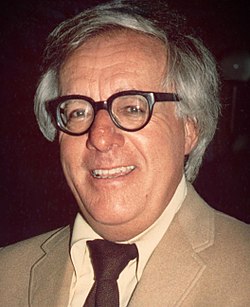Ray Bradbury Quote
The worst thing you do when you think is lie — you can make up reasons that are not true for the things that you did, and what you’re trying to do as a creative person is surprise yourself — find out who you really are, and try not to lie, try to tell the truth all the time. And the only way to do this is by being very active and very emotional, and get it out of yourself — making things that you hate and things that you love, you write about these then, intensely. When it’s over, then you can think about it; then you can look, it works or it doesn’t work, something is missing here. And, if something is missing, then you go back and reemotionalize that part, so it’s all of a piece.But thinking is to be a corrective in our life — it’s not supposed to be a center of our life.
The worst thing you do when you think is lie — you can make up reasons that are not true for the things that you did, and what you’re trying to do as a creative person is surprise yourself — find out who you really are, and try not to lie, try to tell the truth all the time. And the only way to do this is by being very active and very emotional, and get it out of yourself — making things that you hate and things that you love, you write about these then, intensely. When it’s over, then you can think about it; then you can look, it works or it doesn’t work, something is missing here. And, if something is missing, then you go back and reemotionalize that part, so it’s all of a piece.But thinking is to be a corrective in our life — it’s not supposed to be a center of our life.
Related Quotes
About Ray Bradbury
Bradbury is best known for his novel Fahrenheit 451 (1953) and his short-story collections The Martian Chronicles (1950), The Illustrated Man (1951), and The October Country (1955). Other notable works include the coming of age novel Dandelion Wine (1957), the dark fantasy Something Wicked This Way Comes (1962) and the fictionalized memoir Green Shadows, White Whale (1992). He also wrote and consulted on screenplays and television scripts, including Moby Dick and It Came from Outer Space. Many of his works were adapted into television and film productions as well as comic books. Bradbury also wrote poetry which has been published in several collections, such as They Have Not Seen the Stars (2001).
The New York Times called Bradbury "An author whose fanciful imagination, poetic prose, and mature understanding of human character have won him an international reputation" and "the writer most responsible for bringing modern science fiction into the literary mainstream".
